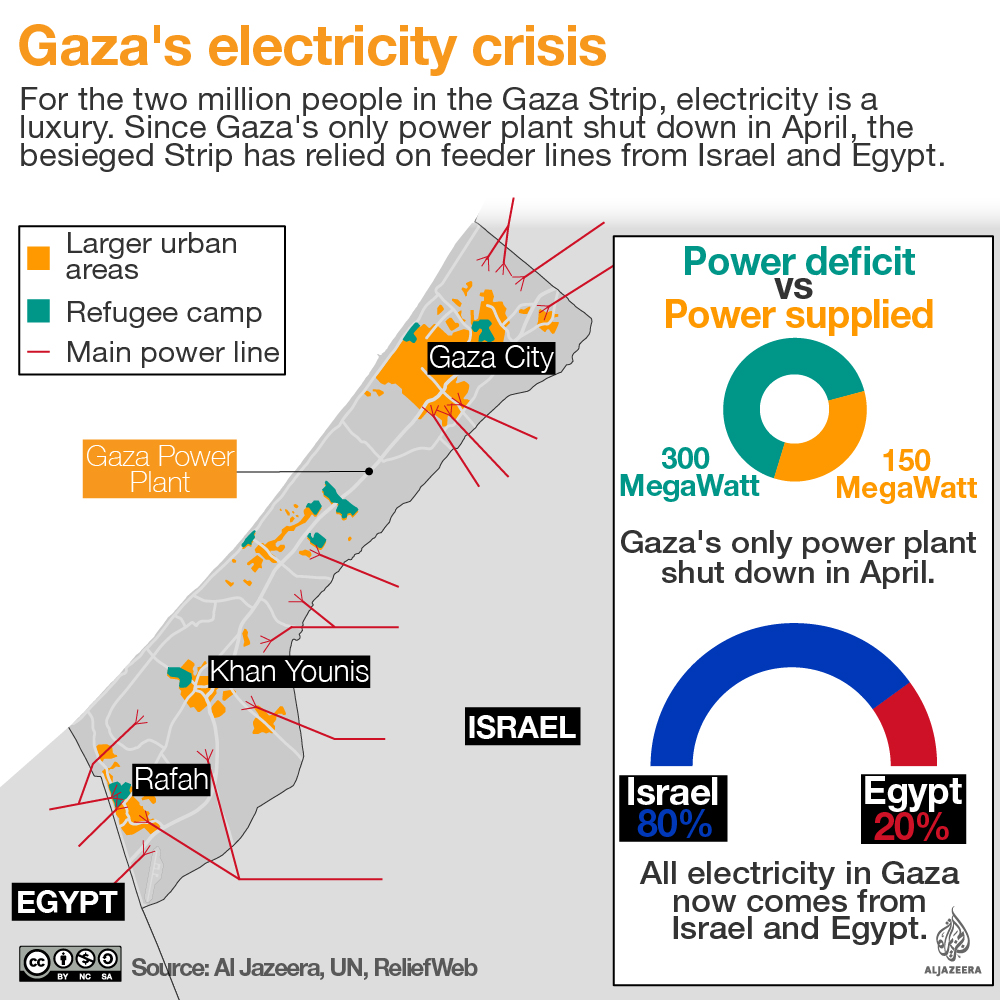UN: Gaza conditions 'Unlivable' ten years into siege
Palestinians spend time on a beach in a warm weather in Gaza City [Reuters] A report by…
A report by the United Nations says living conditions in the Gaza Strip have worsened in the 10 years since the territory was blockaded by Israel.
The report, which was published on Tuesday and titled “Gaza – 10 years later“, says that key indicators identified in an earlier 2012 UN report, such as declining incomes, healthcare, education and electricity have deteriorated yet further.
The UN said that real GDP per capita in Gaza has decreased while the provision of urgently-needed health services has continued to decline.
The report also finds that Gaza’s only water source is predicted to be “irreversibly-depleted” by 2020, unless immediate action is taken.
“Gaza has continued on its trajectory of de-development, in many cases even faster than we had originally projected,” said Robert Piper, the UN Coordinator for Humanitarian Aid and Development Activities.
“When you’re down to two hours of power a day and you have 60 percent youth unemployment rates … that unlivability threshold has been passed quite a long time ago.”
 |
| Robert Piper, the UN’s humanitarian coordinator for the West Bank and Gaza and a deputy secretary general [Ronen Zvulun/Reuters] |
Piper said that while continuous humanitarian assistance, particularly through UN services, are helping to slow this descent, the downward direction remains clear.
“I see this extraordinarily inhuman and unjust process of strangling gradually two million civilians in Gaza that really pose a threat to nobody,” he added.
Commenting in an interview with a Palestinian news agency, Piper said that it is still possible to avoid a humanitarian crisis only if the international community acted fast.
“We need first to put these people a bit higher up, if not at the top of the agenda,” he said.
“We’re 100 percent optimistic that it’s doable if there’s a willingness on the part of the key actors to make it happen.”
In 2007, the Palestinian movement Hamas seized control of the Gaza Strip, after a failed US-backed pre-emptive coup by its rival faction Fatah.
Immediately after, Israel moved to isolate the group by restricting the flow of goods and people in and out of Gaza, limiting access to the sea and working with Egypt to enforce a blockade.
The coastal enclave is home to around 2 million Palestinians, and has a median age of 18.
Israel has launched three offensives on Gaza since 2008, in which thousands of Palestinians were killed.
Severe damage to Gaza’s already weak infrastructure has contributed to the current humanitarian crisis.
On July 7, Israel’s intelligence and transport minister announced plans to build an island port along the coast of the Gaza Strip, to help ease the humanitarian situation there, though the project has not been officially approved yet.
 |
Source: Al Jazeera News

